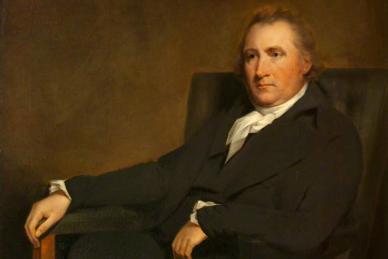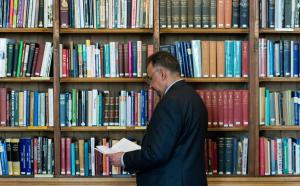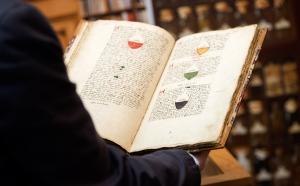
James Gregory
(January 1753 – 2 April 1821)
College Role:
President

Notable Achievements
In 1790, Gregory was appointed Chair of Practice of Physic at the University of Edinburgh.
From 1798 to 1801, Gregory was president of the Royal College of Physicians of Edinburgh.
In 1799, Gregory was appointed first physician to the king in Scotland
In 1820 Gregory’s commission of first physician to the king in Scotland was renewed by George IV.
Key Publications
- Conspectus medicinae theoreticae (1788)
- Philosophical and Literary Essays (1792)
- Memorial to the Managers of the Royal Infirmary (1800)
- Review of the Proceedings of the Royal College of Physicians in Edinburgh (1804)
Biography
James Gregory was born in January 1753 in Aberdeen. His early education was in Aberdeen before enrolling at the University of Edinburgh where he did an arts course. Gregory spent a year, 1766 to 1767, at Christ Church, Oxford. He returned to Edinburgh in 1767 to study medicine under William Cullen, Alexander Monro secundus, Joseph Black and John Hope, as well as his own father, John Gregory. His father died while Gregory was in the middle of his course and he took over his father’s lectureship, becoming a temporary professor as a student. He graduated MD in 1774 and then spent two years studying medicine in Leiden, Paris and Italy.
In 1776 Gregory returned to Edinburgh where he became Professor of the Institute of Medicine. In a very short time he became famous both as a physician and as a teacher. Like many subsequent professors of medicine, he wrote a textbook of medicine that became the standard work and brought him international fame – Conspectus Medicinae Theoretical. Gregory took on a leading role in the teaching at the university while simultaneously establishing a private practice.
Perhaps the high point of Gregory’s distinguished career was in 1790, when he was appointed joint professor with Cullen for the rest of his life, with the right to succeed Cullen as the sole occupant of the chair on the latter’s retirement or death. Whatever their academic relationship, both men often disagreed most vocally in matters related to the Royal College of Physicians of Edinburgh, which was going through turbulent times. Gregory was known as a superb lecturer and by 1818, owing to his growing practice, he employed the help of his nephew, William Pulteney Alison, to assist with lectures.
Like so many of his contemporaries Gregory was argumentative, quarrelsome and often feuding (‘at war’ as he said himself) although, to be fair, his disagreements were often justified and his views worth listening to. For example, since the Edinburgh Infirmary had opened in 1729, College Fellows had taken it in turn to provide medical care to its patients, each serving for a month before being replaced by another. This was clearly not a satisfactory arrangement, as Gregory pointed out. He managed to get agreement that the infirmary managers should appoint permanent staff, each to serve for a fixed period of ten years.
Perhaps the most colourful thing Gregory did was to assault a fellow physician, James Hamilton, with his cane. For this he was fined £100 but, far from being contrite, he said he would gladly pay double for the chance to do it again.
Between 1798 and 1801 Gregory was President of the College. Sadly his association with the Edinburgh College came to an end in 1809 when he was suspended for divulging confidential matters relating to the College and refused to apologise for doing so.
Gregory and his first wife lived in St John Street, but after her untimely death and his second marriage in 1796 he moved to Canaan Lodge, then in the country but now part of Morningside. It was in his garden there that he grew Turkestan rhubarb used in the mixture associated with his name, Gregory’s Powder, which he recommended as a laxative and tonic. There were no children from his first marriage but 11 from the second. Gregory had a riding accident in 1820, sustaining fractured ribs and a hydrothorax, and never fully recovered. He died in 1821 and was buried in Canongate Churchyard.



